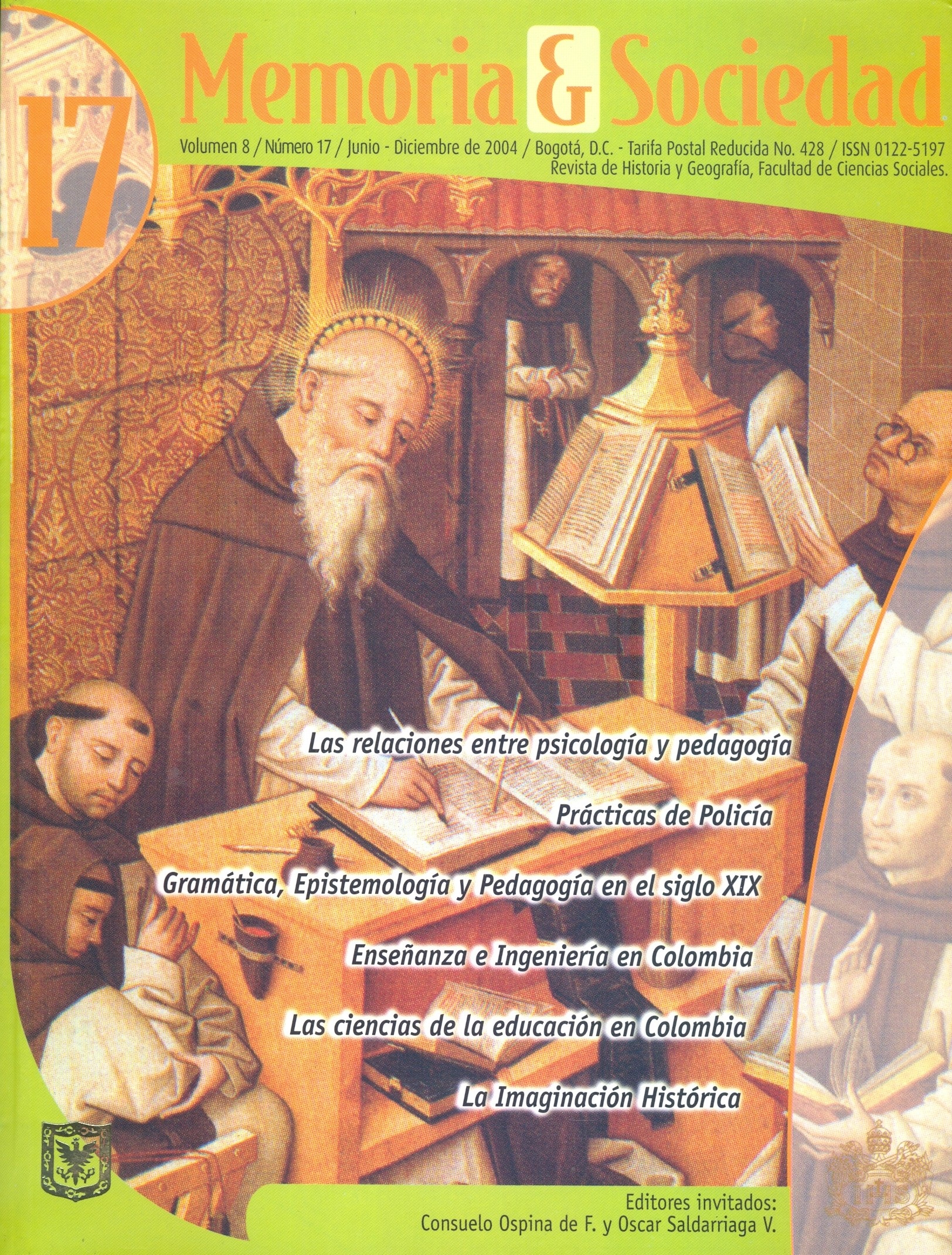Abstract
This article analyze the so called "Texts question", a political and philosophical debate that took place in Colombia in 1870, about the scientific nature of the "Elements of ideology'' From the French Philosopher Desttut de Tracy. The article analyzes the debate's origin, the implicated actors and how this polemic declared an epistemological break that implied a new way to conceive the sciences, the language and the pedagogy in Colombia.This breaks determinate the local appropriation conditions from the positive sciences that emerged as the axe of modernity al the end of XIX century. Finally, there are hypothesis proposed about the experimental medicine method from the French Physician Claude Bernard as well as knowledge theory which enable the entry to an experimental episteme which had to be assumed by the incipient Colombian intellectuals.
The journal Memoria y Sociedad is registered under a Creative Commons Attribution 4.0 International Public License. Thus, this work may be reproduced, distributed, and publicly shared in digital format, as long as the names of the authors and Pontificia Universidad Javeriana are acknowledged. Others are allowed to quote, adapt, transform, auto-archive, republish, and create based on this material, for any purpose (even commercial ones), provided the authorship is duly acknowledged, a link to the original work is provided, and it is specified if changes have been made. Pontificia Universidad Javeriana does not hold the rights of published works and the authors are solely responsible for the contents of their works; they keep the moral, intellectual, privacy, and publicity rights.
Approving the intervention of the work (review, copy-editing, translation, layout) and the following outreach, are granted through an use license and not through an assignment of rights. This means the journal and Pontificia Universidad Javeriana cannot be held responsible for any ethical malpractice by the authors. As a consequence of the protection granted by the use license, the journal is not required to publish recantations or modify information already published, unless the errata stems from the editorial management process. Publishing contents in this journal does not generate royalties for contributors.

